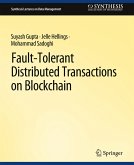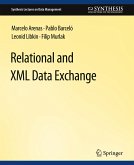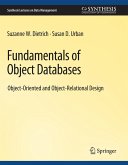Query reformulation refers to a process of translating a source query-a request for information in some high-level logic-based language-into a target plan that abides by certain interface restrictions. Many practical problems in data management can be seen as instances of the reformulation problem. For example, the problem of translating an SQL query written over a set of base tables into another query written over a set of views; the problem of implementing a query via translating to a program calling a set of database APIs; the problem of implementing a query using a collection of web services. In this book we approach query reformulation in a very general setting that encompasses all the problems above, by relating it to a line of research within mathematical logic. For many decades logicians have looked at the problem of converting "implicit definitions" into "explicit definitions," using an approach known as interpolation. We will review the theory of interpolation, and explain its close connection with query reformulation. We will give a detailed look at how the interpolation-based approach is used to generate translations between logic-based queries over different vocabularies, and also how it can be used to go from logic-based queries to programs.








